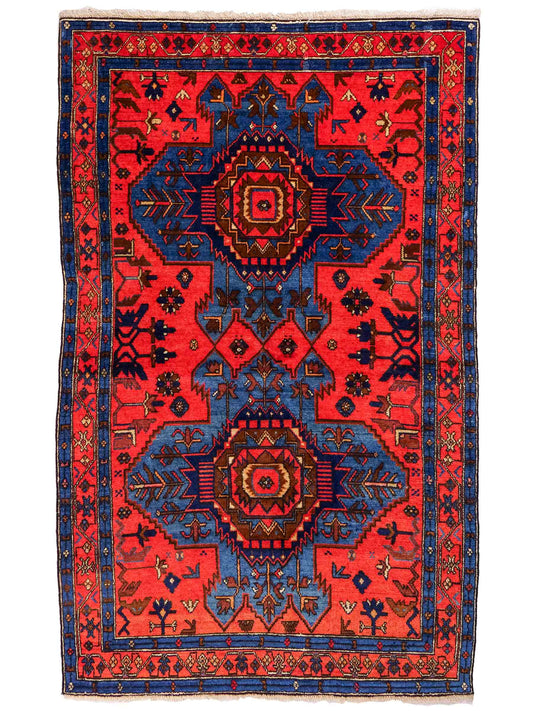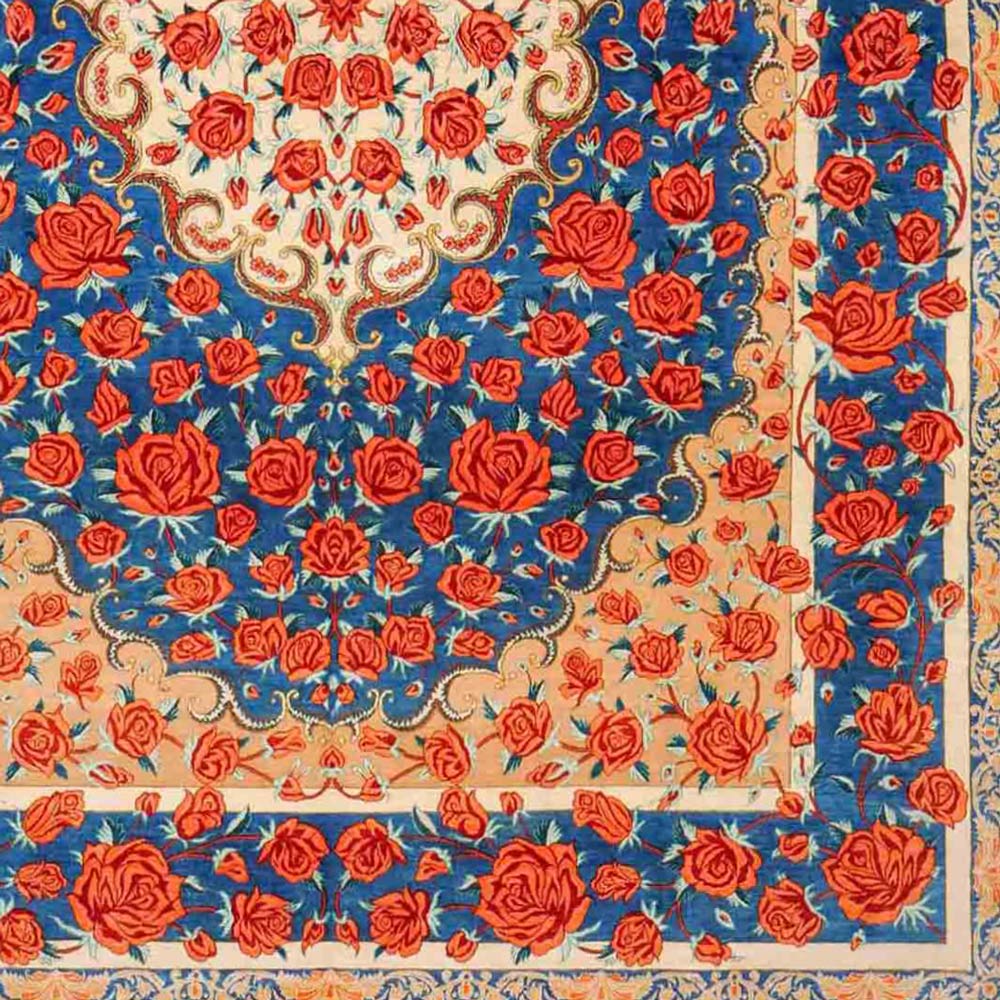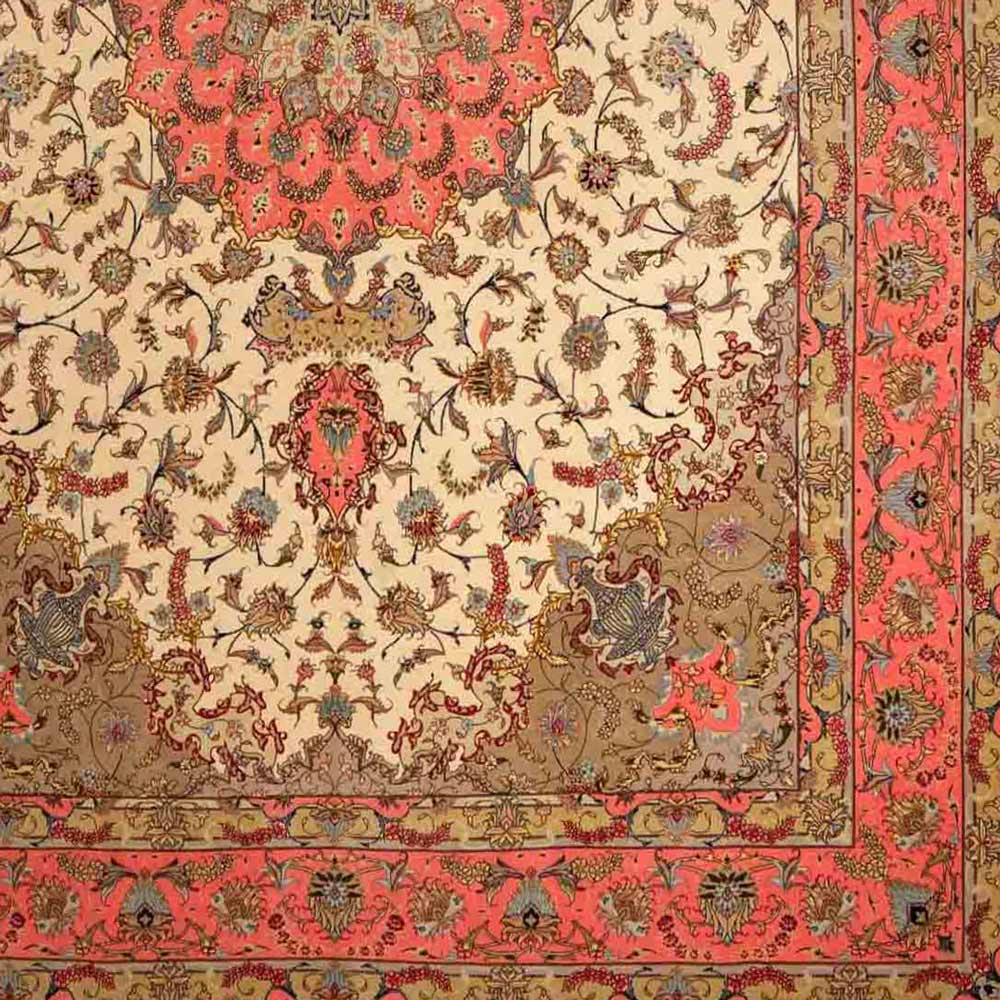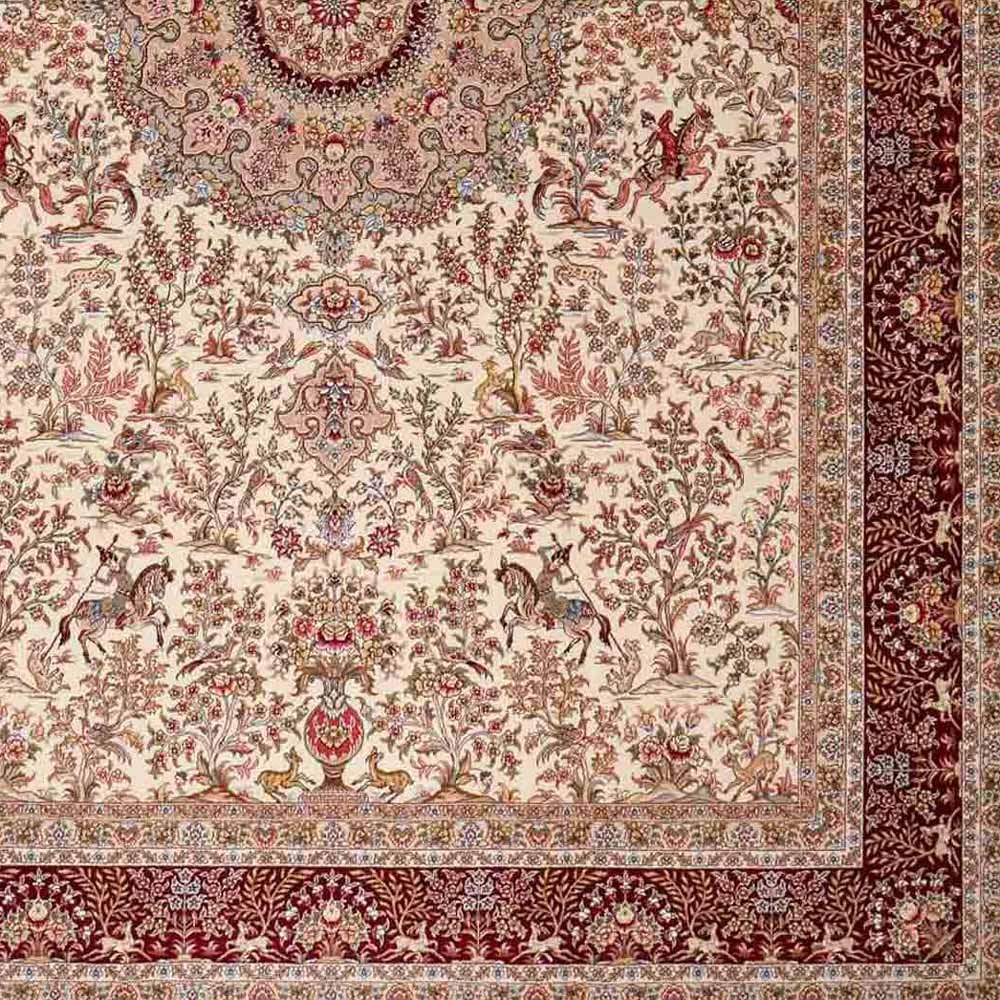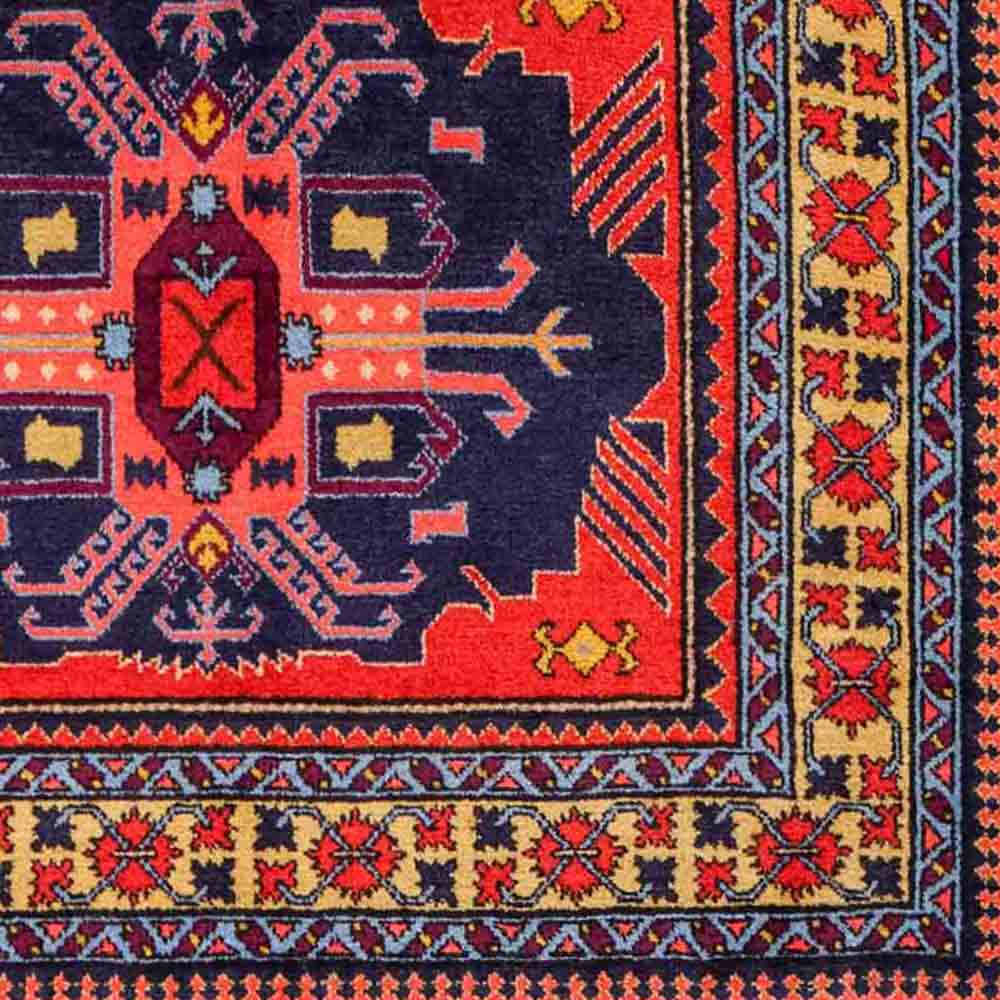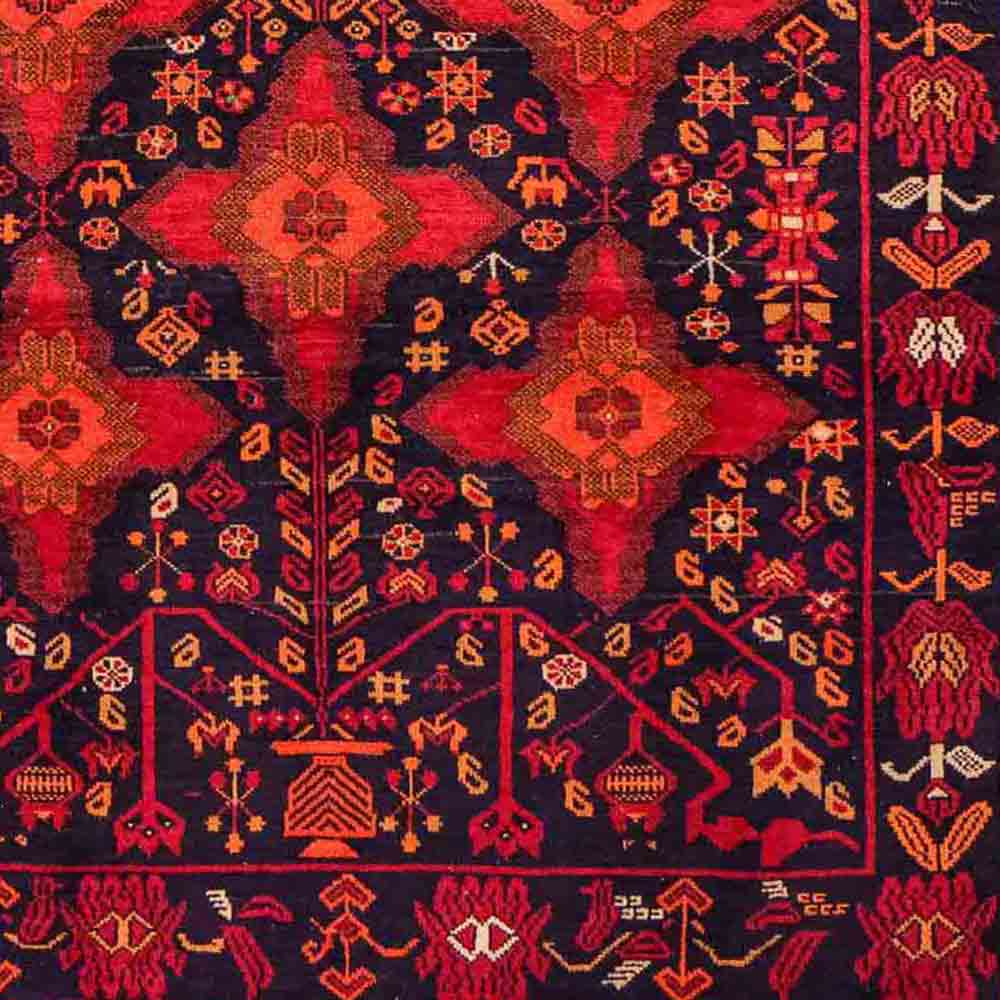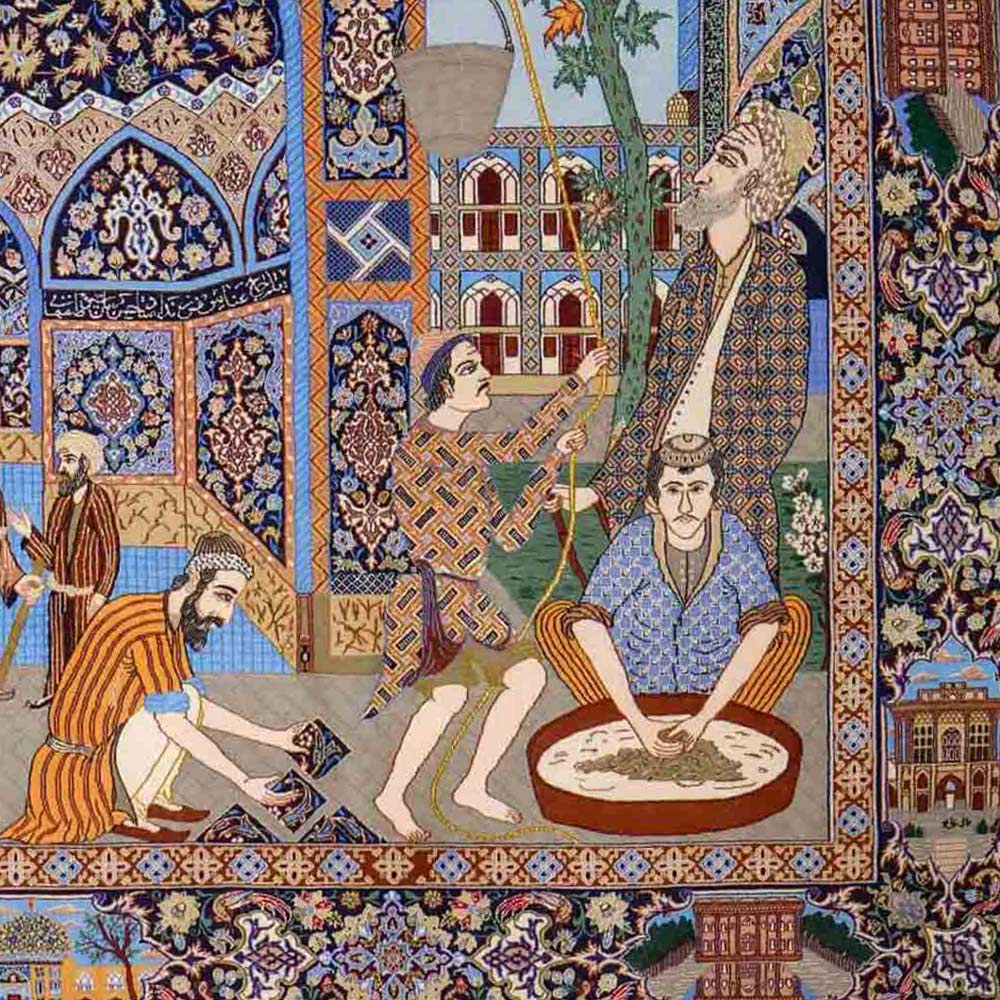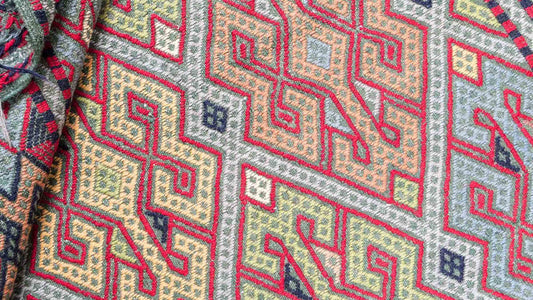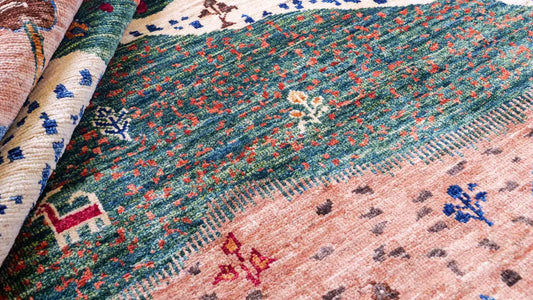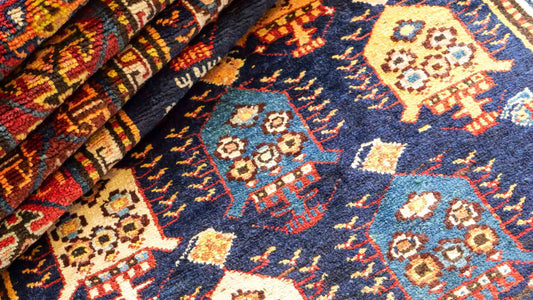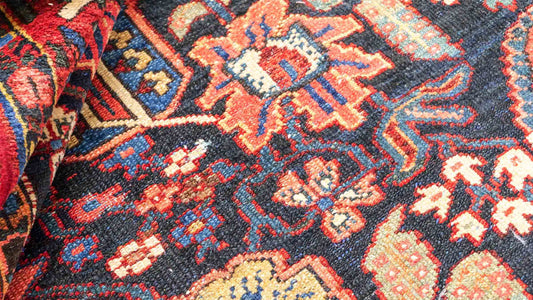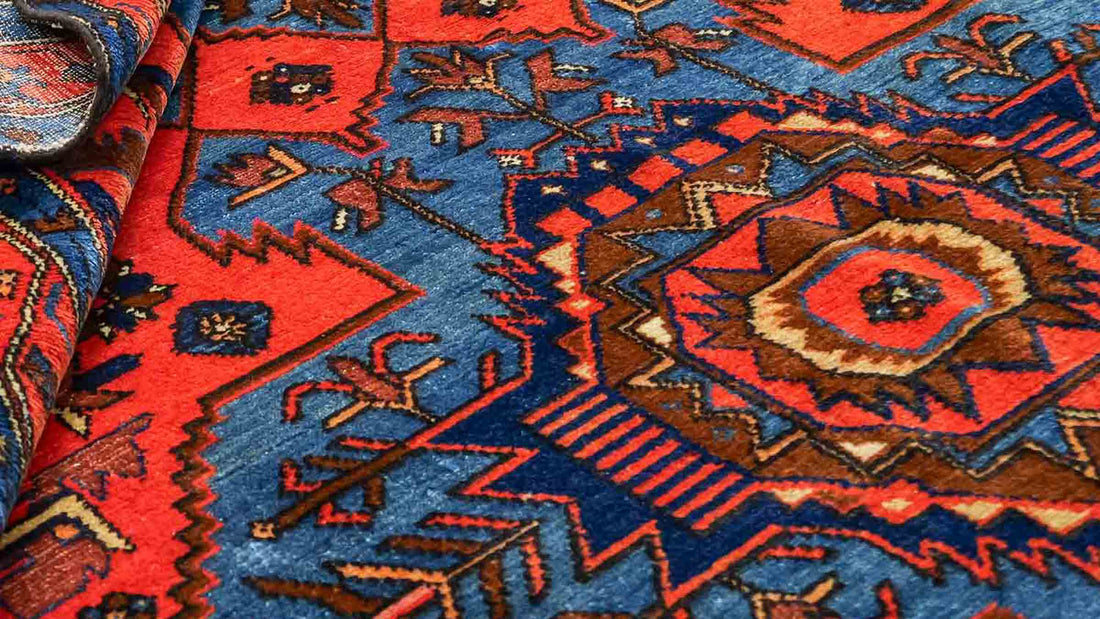
Malayer
Daniel KhademiMalayer rugs are valued for their regional character and the rich diversity of traditional Persian village weaving. They combine classic patterns and colors with reliable craftsmanship—making them a charming and authentic accent for a wide range of interiors. Discover what distinguishes an original Malayer rug, how these pieces are made, and how you can enhance your home with their subtle, enduring charm.
Malayer Rugs: Key Facts at a Glance
- Origin: City of Malayer & surrounding region, western Iran, Hamadan province
- Material: High-quality wool (occasionally silk accents), naturally dyed with plant-based colors
- Patterns: Geometric motifs, intricate floral designs, large medallions, detailed borders
- Knotting: Hand-knotted, 150,000–250,000 knots/m², outstanding durability
- Character: Rustic, artistic—each rug a unique piece with strong regional identity
- Value: Genuine collector’s items, long-term value retention, sustainable craftsmanship
- Care: Durable and easy to maintain, with a lifespan spanning generations
- Interior Style: Perfect for classic, rustic & modern homes—highly versatile and combinable
Discover Malayer Rugs in our shop or request personal advice to find your perfect original!
Origin, History & Cultural Significance of Malayer Rugs
Geographic Features of Malayer
Malayer is located in a picturesque region of western Iran, shaped by gentle hills and fertile soils. This area offers ideal conditions for sheep farming, resulting in the high-quality wool used for Malayer rugs. The mild climate also promotes the growth of herbs and plants that serve as natural dyes, lending Malayer rugs their vibrant and lasting colors.
Historical Development: The Malayer Weaving Tradition
The history of rug weaving in Malayer goes back centuries and is closely tied to the region’s traditions and cultural heritage. During the Safavid era, Malayer was an important center for carpet production, leading to the development of unique designs and techniques. Malayer rugs are famous for their geometric and floral motifs, often inspired by nature and carrying deeper meanings.
Symbolism and Cultural Meaning of Malayer Rugs
The patterns and color schemes in Malayer rugs hold specific cultural meanings. A closer look reveals that certain colors and shapes are intricately linked to traditional tales and beliefs. These elements not only give the rugs aesthetic appeal but also build a connection to the region’s rich history.
Social and Economic Importance of Malayer Rugs
Malayer rugs are more than beautiful décor—they play an essential role in the economic and social life of the region. Many families are engaged in weaving, and the craft provides numerous jobs. Especially for women, this traditional art form offers opportunities for economic independence. Passing down these artisanal skills keeps cultural identity alive and ensures that knowledge is preserved across generations.
Manufacturing & Knot Density of Malayer Rugs
Malayer rugs are traditionally made from top-quality wool, and occasionally silk. The wool comes from local sheep breeds and is dyed using natural colorants to create vivid and long-lasting hues. The production process involves several steps: shearing the sheep, dyeing the wool, designing the patterns, and weaving the rug by hand. Knot density varies but usually ranges from 150,000 to 250,000 knots per square meter.
The Aesthetics of Malayer Rugs
Designs, Patterns & Colors
The designs of Malayer rugs are distinguished by a variety of geometric forms and finely wrought floral motifs. Many feature prominent central medallions and detailed borders, telling cultural stories through pattern. Their color palette ranges from deep reds and warm earth tones to vibrant blues, giving each rug its own distinctive character. Compared to carpets from other regions, such as Isfahan or Tabriz, Malayer rugs stand out for their rustic designs and use of natural materials.
Regional Variations and Styles
The Malayer region is home to numerous tribes, each weaving its own designs and styles into the rugs. This diversity of motifs and color combinations reflects the cultural identity of each community and ensures that every piece is truly unique.
Village & Nomadic Rugs Compared: Bakhtiar, Ghashghai, Lori & Malayer
| Criteria | Bakhtiar | Qashqai | Lori | Malayer |
| Origin | Western Iran (Isfahan, Chahar Mahal) | Southwest Iran (Fars), nomadic regions | Southwest Iran (Luristan) | Western Iran (Malayer, Hamadan) |
| Material | Wool, cotton warp | Wool, cotton warp | Wool, cotton warp | Wool, occasionally silk, cotton warp |
| Knot Density | 120,000–300,000 knots/m² | 80,000–300,000 knots/m² | 100,000–300,000 knots/m² | 150,000–250,000 knots/m² |
| Design | Garden & field motifs, medallion, floral | Tribal, diamonds, animal/flower motifs | Primitive geometry, tribal art | Geometric, floral, medallions |
| Color Palette | Strong contrasts: red, blue, green | Vivid red, blue, yellow, natural | Natural tones, red, brown, orange | Red, blue, earth tones |
| Character | Distinctive, decorative, solid | Tribal, lively, expressive | Earthy, authentic, robust | Rustic, detailed, artistic |
| Special Features | Iconic garden & field motifs, nomadic weave | Highly expressive nomadic rugs | Extremely robust nomadic rugs | Rich pattern diversity, village rug heritage |
| Value/Price Range | Mid to upper segment | Entry to mid segment | Entry level, highly durable | Entry to mid segment |
Checklist: How to Spot Authentic Malayer Rugs
- Certificate or proof of authenticity from a specialist dealer or importer ✔
- Very firm, matte wool—no artificial sheen ✔
- Visible hand-knotted irregularities ✔
- Complex geometric and floral motifs ✔
- Typical: large medallions, detailed borders, vibrant natural colors ✔
- Back of the rug mirrors the front pattern ✔
- Hand-finished fringes and precision edges ✔
Care & Preservation of Malayer Rugs
How to Keep Your Malayer Beautiful for Generations:
- Vacuum regularly, do not beat
- Blot stains immediately with lukewarm water & cloth
- Keep out of direct sunlight
- Professional cleaning recommended every 1–2 years
- For more detailed advice, visit our blog post: *How to Care for Hand-Knotted Rugs*
Styling Ideas: Perfectly Combining Malayer Rugs
Malayer rugs are a perfect match for traditional and rustic interiors as well as modern designs. They pair beautifully with wood furniture and can add a welcoming accent in minimalist spaces. Combine them with classic or neutral color palettes for a stylish and balanced atmosphere.
Value & Investment: A Unique Piece for Life
Malayer rugs offer outstanding value for money. For a relatively modest sum, you get not only a hand-knotted one-of-a-kind but a robust quality product you will enjoy for years, one that gains even more character as it ages. While generally in the entry to mid-price segment—and with no guaranteed increase in value—these rugs are highly prized by collectors worldwide. Additionally, buying Malayer rugs supports the regional economy and helps preserve the area’s rich cultural heritage.
► For detailed tips & in-depth guidance, see our blog post: *Are Hand-Knotted Rugs a Good Investment?*
Request a free personal style or purchasing consultation for Malayer rugs today!
FAQ – Frequently Asked Questions about Malayer Rugs
What defines an authentic Malayer rug?
► Meticulous handcraftsmanship, premium wool, regional (often natural) dyes, signature geometric and floral motifs—each rug is unique.
How do I care for a Malayer rug?
► Gentle vacuuming, keep out of direct sunlight, treat stains immediately, professional cleaning every 1–2 years. Read more in our blog post: *How to Care for Hand-Knotted Rugs*
Are Malayer rugs a good investment?
► Originals with proven provenance and unique designs are always in demand and tend to hold their value. —read more in our guide: *Are Hand-Knotted Rugs a Good Investment?*
How best to style Malayer rugs at home?
► Combine with wood, leather, and natural textiles, as well as both classic and modern furniture; perfect as a statement piece in minimalist interiors.
Where can I buy authentic Malayer rugs with confidence?
► The best sources are specialist dealers or trusted online shops. At JUPITER Intl, every hand-knotted, hand-tufted, and handwoven rug comes with a Certificate of Authenticity.
Conclusion: Where Art and Tradition Meet—Malayer Rugs
Malayer rugs are a beautiful fusion of art, history, and expert craftsmanship. They don’t just bring style and character into your home—they offer a window into the cultural roots of Iran. Investing in a Malayer rug means acquiring a truly unique piece that is both practical and aesthetically inspiring, creating a warm and welcoming atmosphere.
Request your personal consultation or explore our current Malayer Collection now!
Related blogs & blog posts you might also be interested in:
→ Design Classics, Countries of Origin, Carpet Materials, Carpet Guide

